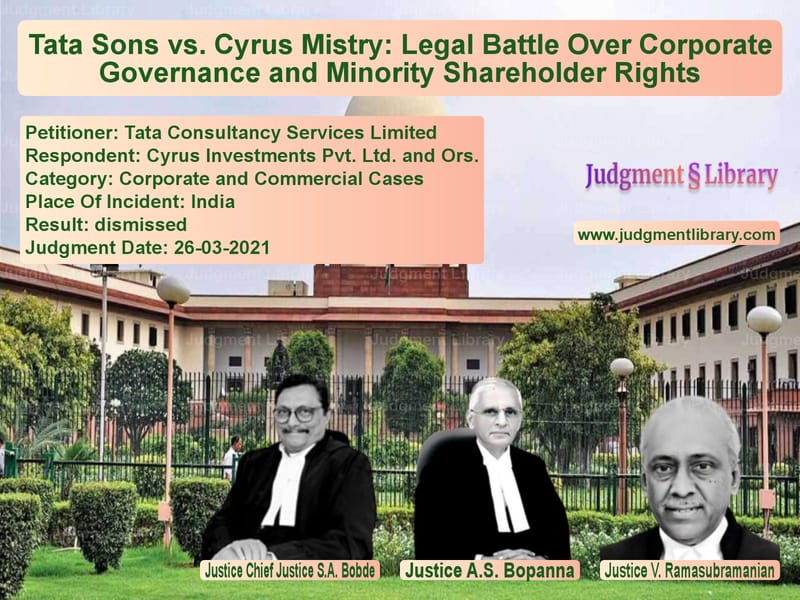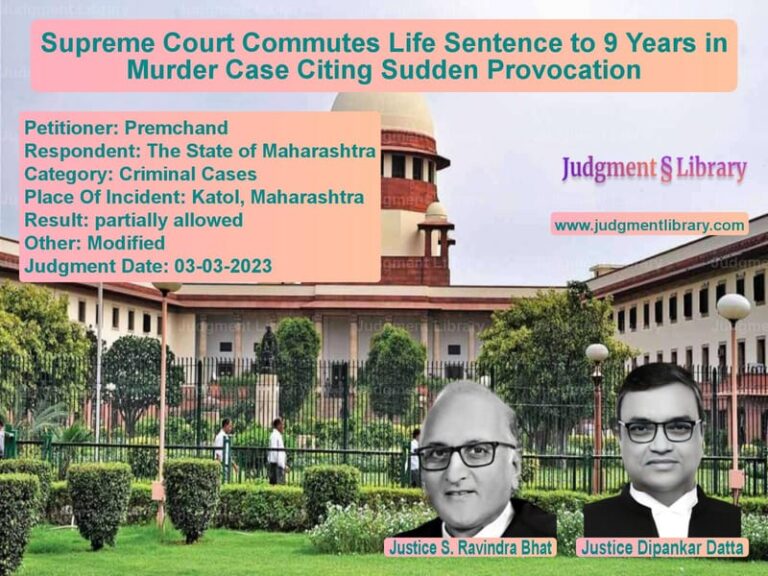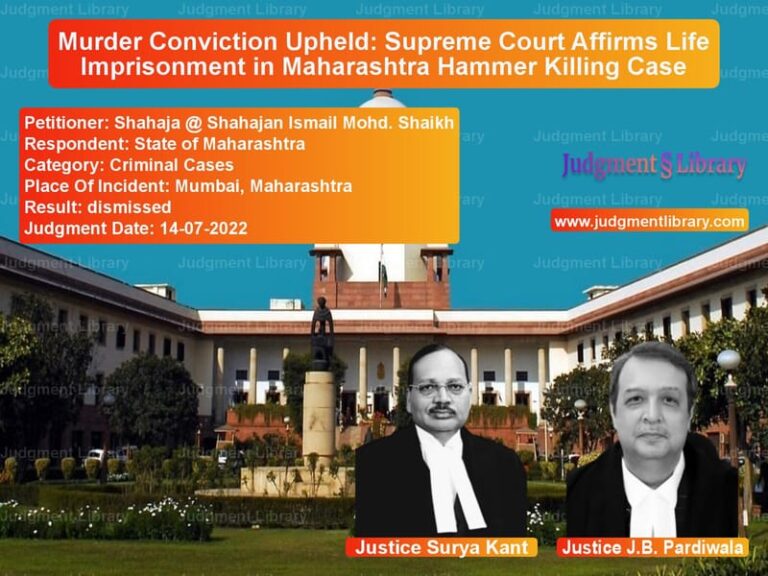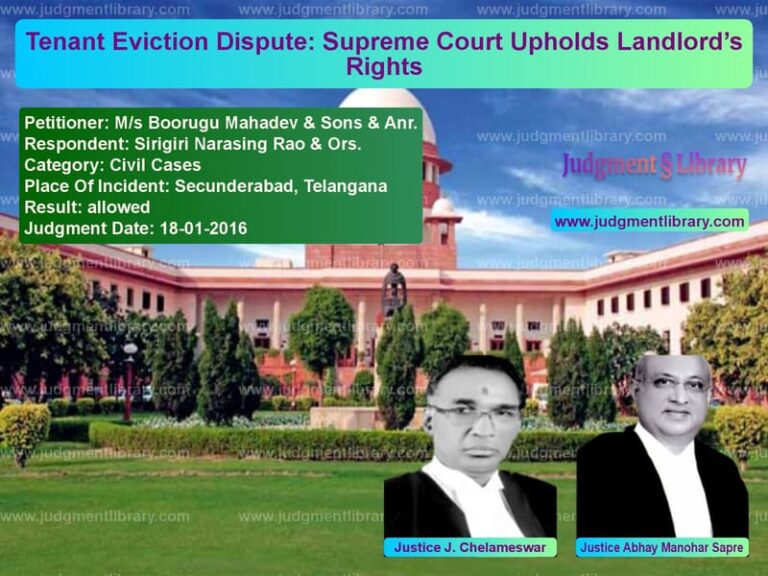Tata Sons vs. Cyrus Mistry: Legal Battle Over Corporate Governance and Minority Shareholder Rights
The legal dispute between Tata Sons and Cyrus Mistry is a landmark case in Indian corporate governance, involving allegations of oppression and mismanagement. The case reached the highest court, where both sides presented arguments regarding the removal of Mistry as Executive Chairman of Tata Sons and its impact on the governance structure of the company.
Background of the Case
Tata Sons, a major holding company in India, is controlled largely by the Tata Trusts, which hold a significant share in the company. Cyrus Mistry was appointed as the Executive Chairman in 2012. However, in 2016, the Board of Tata Sons decided to remove Mistry from his position, citing loss of confidence. The matter escalated when Mistry’s investment firms, Cyrus Investments Pvt. Ltd. and Sterling Investment Corporation Pvt. Ltd., approached the National Company Law Tribunal (NCLT), alleging oppression and mismanagement.
The NCLT dismissed the claims, leading Mistry to appeal before the National Company Law Appellate Tribunal (NCLAT), which ruled in his favor. Tata Sons challenged this ruling in the Supreme Court.
Arguments by the Petitioner (Tata Sons)
- The decision to remove Mistry was taken by a majority of the Board of Directors, which is well within their corporate governance framework.
- Mistry’s removal was due to loss of confidence in his leadership and was not an act of oppression or mismanagement.
- Mistry’s continued tenure as Executive Chairman had led to trust issues within the Board.
- NCLAT erred in reinstating Mistry, as the Articles of Association of Tata Sons give power to the Board to make such decisions.
- Corporate democracy cannot be undermined by granting minority shareholders disproportionate control over decision-making.
Arguments by the Respondent (Cyrus Mistry & Investment Firms)
- The removal of Mistry was premeditated and carried out without due process, violating the principles of corporate governance.
- The affirmative voting rights given to Tata Trusts effectively rendered the Board’s decisions subject to their prior approval, undermining the independence of the Board.
- The conversion of Tata Sons from a public to a private company was done illegally and without following due legal procedures.
- The removal of Mistry as a director from other Tata Group companies was part of a larger strategy to suppress dissent.
- The actions of Tata Sons and its Trustees amounted to oppression of minority shareholders.
Observations of the Supreme Court
The Supreme Court examined whether the actions of Tata Sons and its Board constituted oppression and mismanagement under Sections 241 and 242 of the Companies Act, 2013. The Court observed:
- Corporate governance is based on trust and fiduciary responsibility. Loss of trust in a leader is a sufficient ground for their removal.
- The power of affirmative voting by Tata Trusts did not per se amount to oppression, as it was a part of the Articles of Association agreed upon by all shareholders.
- The reinstatement of Mistry by NCLAT was not justified as the courts do not interfere in the commercial wisdom of the Board unless illegality is proved.
- The conversion of Tata Sons from a public to a private company was questionable, but it did not impact minority shareholder rights significantly.
Key Excerpts from the Judgment
One of the key statements from the judgment noted:
“The removal of an Executive Chairman is within the purview of the Board and cannot be construed as oppression. The judiciary cannot dictate the appointment or removal of an executive in a corporate entity unless there is clear evidence of legal violations.”
Further, on the issue of affirmative voting rights, the Court stated:
“The Articles of Association define the governance structure of a company. Affirmative voting rights granted to Tata Trusts were known to all shareholders and cannot be retrospectively challenged unless they violate statutory provisions.”
Final Verdict
The Supreme Court ruled in favor of Tata Sons, overturning the NCLAT decision that reinstated Cyrus Mistry. It held that:
- The removal of Mistry was legally valid and did not constitute oppression or mismanagement.
- NCLAT overstepped its jurisdiction by ordering Mistry’s reinstatement.
- The corporate governance structure of Tata Sons, including affirmative voting rights for Tata Trusts, was lawful.
- The conversion of Tata Sons to a private company should be reviewed, but it was not a determining factor in the case.
Implications of the Judgment
The judgment reaffirmed the principle that majority shareholders and Boards have the right to take decisions in the best interests of the company. It also underscored the importance of Articles of Association in defining corporate governance structures.
For minority shareholders, the case highlights the need for clear legal provisions to protect their interests. While corporate governance is essential, the judiciary remains cautious in intervening in business decisions unless statutory violations are evident.
Conclusion
The Tata Sons vs. Cyrus Mistry case serves as a crucial precedent in Indian corporate law, balancing the rights of majority stakeholders and minority shareholders. The Supreme Court’s ruling provides clarity on the scope of judicial intervention in corporate disputes, emphasizing adherence to governance frameworks while protecting shareholder rights.
Petitioner Name: Tata Consultancy Services Limited.Respondent Name: Cyrus Investments Pvt. Ltd. and Ors..Judgment By: Justice Chief Justice S.A. Bobde, Justice A.S. Bopanna, Justice V. Ramasubramanian.Place Of Incident: India.Judgment Date: 26-03-2021.
Don’t miss out on the full details! Download the complete judgment in PDF format below and gain valuable insights instantly!
Download Judgment: tata-consultancy-ser-vs-cyrus-investments-pv-supreme-court-of-india-judgment-dated-26-03-2021.pdf
Directly Download Judgment: Directly download this Judgment
See all petitions in Company Law
See all petitions in Corporate Governance
See all petitions in Shareholder Disputes
See all petitions in Corporate Compliance
See all petitions in unfair trade practices
See all petitions in Judgment by S. A. Bobde
See all petitions in Judgment by A. S. Bopanna
See all petitions in Judgment by V. Ramasubramanian
See all petitions in dismissed
See all petitions in supreme court of India judgments March 2021
See all petitions in 2021 judgments
See all posts in Corporate and Commercial Cases Category
See all allowed petitions in Corporate and Commercial Cases Category
See all Dismissed petitions in Corporate and Commercial Cases Category
See all partially allowed petitions in Corporate and Commercial Cases Category







